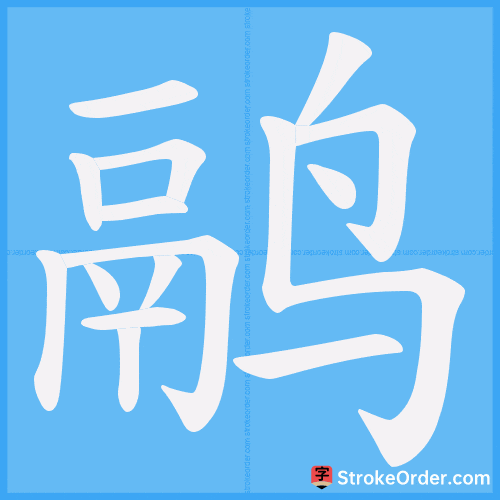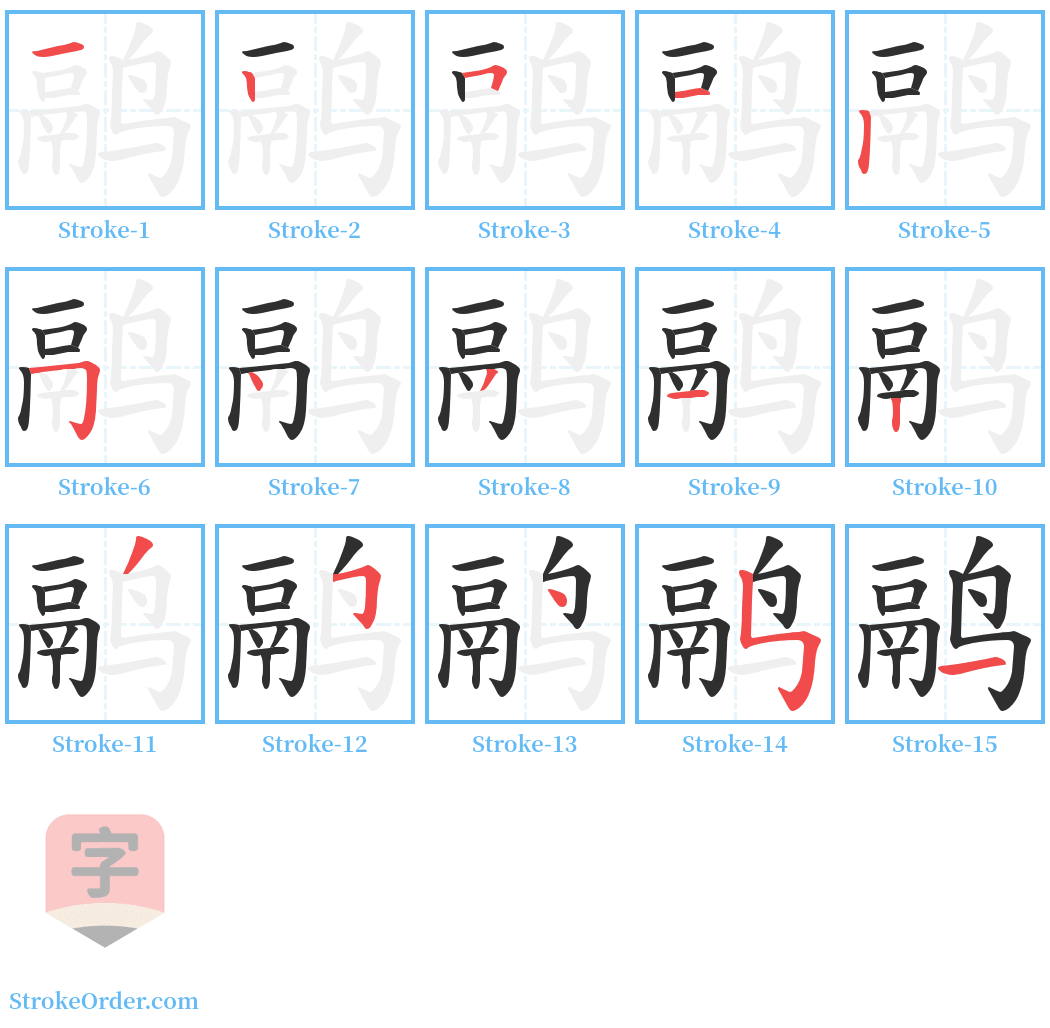鹝 Stroke Order
Animated Stroke Order of 鹝

Stroke Order Diagrams for 鹝

Information of 鹝
Pinyin
yì
Radical
鸟
Strokes
15 strokes
Usage
★★
Definition
鹝
(yì)
1. In ancient texts, refers to "吐绶鸡" (turkey).
古书上指“吐绶鸡”,俗称“火鸡”。
2. In ancient texts, refers to a type of grass.
古书上指一种草。
3. [Noun] Same as "鶂" (a kind of aquatic bird).
同“鶂”。鸟名 ([En.] a kind of aquatic bird)
4. [Noun] In ancient texts, refers to 吐绶鸡 (turkey).
古书上指吐绶鸡 ([En.] turkey)
5. [Noun] Name of a grass; 绶草 (ribbon grass).
草名。绶草。也作鹝 ([En.] ribbon grass)
引例:
1. Song Dynasty, Lu Dian's "Piya" - "The ribbon bird, also known as 鹝, may also be called 吐绶. It has a throat pouch that resembles a small ribbon, adorned with five brilliant colors."
宋·陆佃《埤雅·释鸟》:绶鸟,一名鹝,亦或谓之吐绶。咽下有囊如小绶,五色彪炳。
例句:
For example: 鹝绶 (a metaphor for the literary and artistic quality of poetry).
又如: 鹝绶(比喻诗文的文理色彩)
6. [Noun] Name of a grass; 绶草 (ribbon grass).
草名。绶草。也作鹝 ([En.] ribbon grass)
引例:
1. "In the poem from the Book of Songs: 'In the middle of Tang there is 渐, and in Qiong there is delicious 鹝.'"
《诗·陈风·防有鹊巢》:中唐有甓,邛有旨鹝。